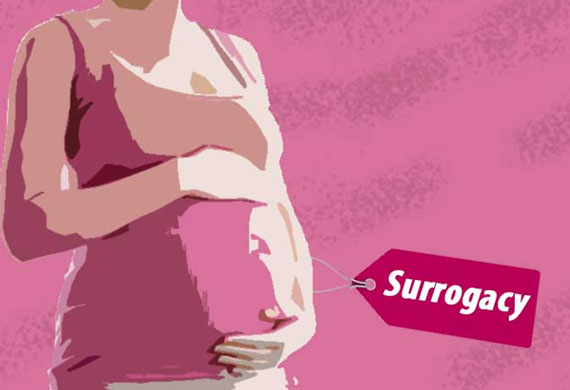A comprehensive law to regulate surrogacy has been long overdue. Over the years, India has become a global hub for the practice of women being contracted to carry others’ babies, usually for a payment. While estimates of the size of the surrogacy market vary wildly, it is one in which the woman carrying an embryo has been in a grey zone, with uncertain legal and compensatory protection. The Union Cabinet has taken the first step towards regulation by approving the Surrogacy (Regulation) Bill, 2016, but it has many problematic provisions.
a.)The proposed law, in line with the practice in several other countries, says commercial surrogacy will be prohibited. However, in order that “altruistic surrogacy” is available for the benefit of infertile couples who are presumably desperate for a child that is genetically theirs,
b)the Bill allows Indian couples, who must have been married for five years without a child, to take the help of surrogates, but without any payment. Only close relatives can be ‘surrogate mothers’, and once in a lifetime.
c)Yet, it bars foreigners, homosexual couples, unmarried couples and single people from taking the help of an altruistic surrogate — leaving it open to questions about discrimination and inequality.It is far from evident that the ban on commercial surrogacy has been thought through for its practical and ethical dimensions. In fact, it is not clear if the ban and the allowance for altruistic surrogacy are meant to make an ideological point or to actually confront the ground situation. While surrogacy has been legal since 2002, enumerating the surrogate mother’s rights and protecting her bodily integrity has been a challenge as the fertility industry mostly remains unregulated. The rights of children born thus too have remained unclear, highlighted dramatically in the case of Baby Manji Yamada, whose Japanese ‘parents’ divorced in the course of the surrogate pregnancy. Such a dilemma of statelessness has been sought to be prevented with the bar on foreigners.
India’s failure
to administer the ban on organ donations and sex determination tests, it is anybody’s guess how effective the ban on commercial surrogacy will be. The sex determination ban is a principled one, for it underlines intolerance for gender discrimination. The question is whether surrogacy is as big an evil as female foeticide. If it indeed is — and the jury is still out on this — why not ban surrogacy altogether? How does it suddenly become acceptable if the surrogate mother is a relative and uncompensated, besides probably being coerced, as women often are in intra-family decision-making? These are questions that will remain even if the Bill is passed.


RAM SGAR says:
GOOD INFO FOR IAS PREP
ReplayRamesh singh says:
.WEN WIL BE HE PRELIMIS ES SERIES FOR 2021 SARS
ReplayPRIyA says:
.REGULAR BACHES ARE ALREAD BEGAN
Replaymanjusri says:
.both vijayangar and Marthahalli branch will have same faculies
ReplayJoshep pillai.says:
.ias 2022 bach , live classes deails pls.
Replay